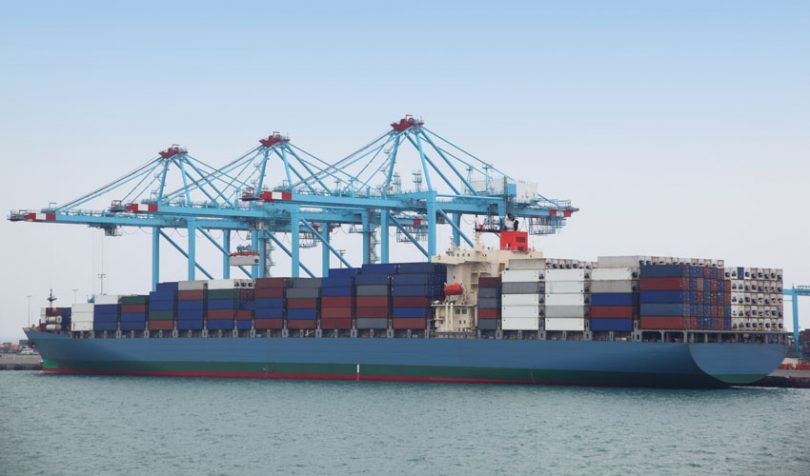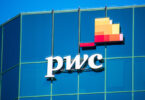On Wednesday in Dubai, Trade Assets launched as a blockchain marketplace for trade finance with 25 banks. The vast majority of the banks (listed below) are Bangladeshi including at least three of the top ten banks in the country. The platform helps to digitize the secondary market for trade finance between financial institutions.
The problem
Typically banks have targets or limits for the amount of trade finance they plan to carry on their books. If they reach capacity, rather than turning away commercial clients, they will sell some of their existing portfolios to other banks. The flipside is that some banks might undershoot their targets so are happy to buy trade finance assets from fellow financial institutions.
Trade Assets estimates the addressable market size for secondary trading at $1 trillion.
Currently, in this secondary market, banks tend to have existing relationships with a small network of other financial institutions with whom they have credit lines and established contractual relationships. But the communications are old fashioned involving emailing spreadsheets back and forth, and numerous phone calls.
“Many bilateral conversations have to be carried out, and paperwork exchanged before a deal can be finalized. And the process of buying and selling can take from a few days to weeks,” explained Sumit Roy, Founder President and CMO of Trade Assets.
One of the global blockchain platforms Marco Polo, also enables the data to be transferred electronically between banks when the trade finance assets are transferred to another financial institution.
The current system also narrows the scope for trade because there’s a lack of price discovery. Comparing the existing secondary market to Trade Assets’s vision, there’s a parallel between old regional classifieds in local newspapers and the online eBay marketplace. eBay broadens the audience, forces price transparency (as opposed to “price negotiable”) and also enables multiparty bidding.
The solution
In Trade Assets’ words, the solution is an “independent, secure e-marketplace which allows buyers and sellers worldwide to list assets for sale, bid for assets to buy, negotiate better pricing and exchange relevant documentation.”
Instead of emailing information which is insecure, encrypted data is shared securely via the platform. And because the data is tracked on a blockchain, it’s almost impossible to alter or delete.
So much like eBay, users can log in to see potential transactions, interact with other banks securely, and view transaction history.
Trade Assets says that the system doesn’t require complex integration. That implies that documents have to be uploaded to the platform. The company also noted that in designing the platform it ensured the process was consistent with current practice to make it effortless for participants. That’s a contentious point as many believe that digital transformation should involve process improvements.
The marketplace uses the Hyperledger Fabric blockchain protocol, and the technology partner was Bangalore-based KrypC.
The company
Trade Assets is part of Fintech Innovations International DMCC. The DMCC designation stands for the Dubai Multi Commodities Centre established by the Dubai government in 2002 as a free zone for commodity trade and finance.
The company was founded by Chairman and CEO Lakshmanan Sankaran and President and CMO Sumit Roy.
The CMO was clear about his ambition: “Trade Assets will offer exceptional economies of scale and ROI and will acquire over 100 clients in 2 years, aiming to reach $1 billion in transaction volumes. We are looking at achieving recovery of investment and a moderate revenue surplus by the end of the 3rd year of operation.”
Roy’s background is in trade finance and international payments. Most recently he was a Managing Director with Deutsche Bank responsible for institutions in the Middle East and Africa. Before that he was with American Express Bank in India, USA and the UAE after starting his career with Price Waterhouse.
Sankaran previously was DMG and Head of operations and trade finance at the Commercial Bank of Dubai where he spent four years. Before that he as with the National Bank of Fujairah in the UAE and BNP Paribas in India.
The 21 banks listed on the Trade Assets website:
| Mercantile Bank | Bangladesh |
| Eastern Bank | Bangladesh |
| Brac Bank | Bangladesh |
| Shahjalal Islami Bank | Bangladesh |
| Dhaka Bank | Bangladesh |
| Bank Asia | Bangladesh |
| Dutch Bangla Bank (DBBL) | Bangladesh |
| Social Islami Bank | Bangladesh |
| Prime Bank | Bangladesh |
| FSIB Islami Bank | Bangladesh |
| UCB | Bangladesh |
| One Bank Limited | Bangladesh |
| National Bank Limited | Bangladesh |
| Mutual Trust Bank | Bangladesh |
| Southeast Bank | Bangladesh |
| Standard Bank | Bangladesh |
| Islami Bank | Bangladesh |
| Rupali Bank | Bangladesh |
| Banque Misr | Egypt |
| Yes Bank | India |
| RAK Bank | Dubai |







